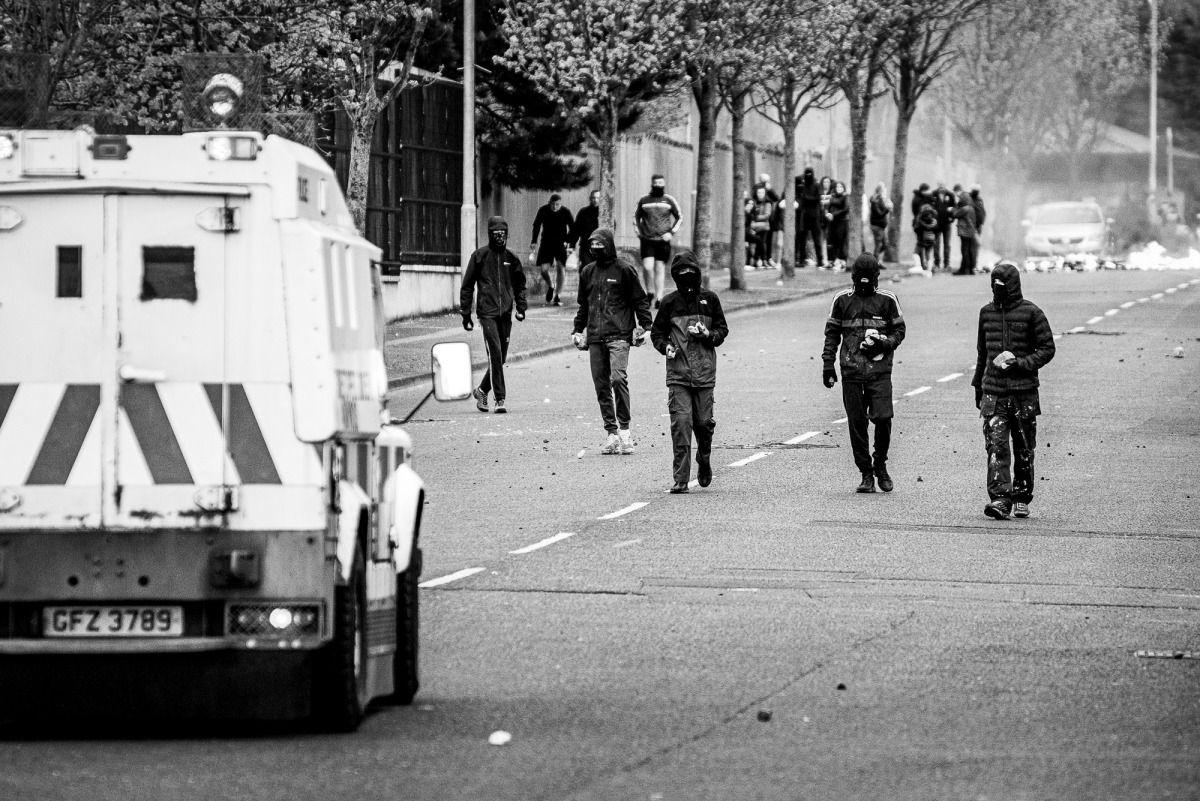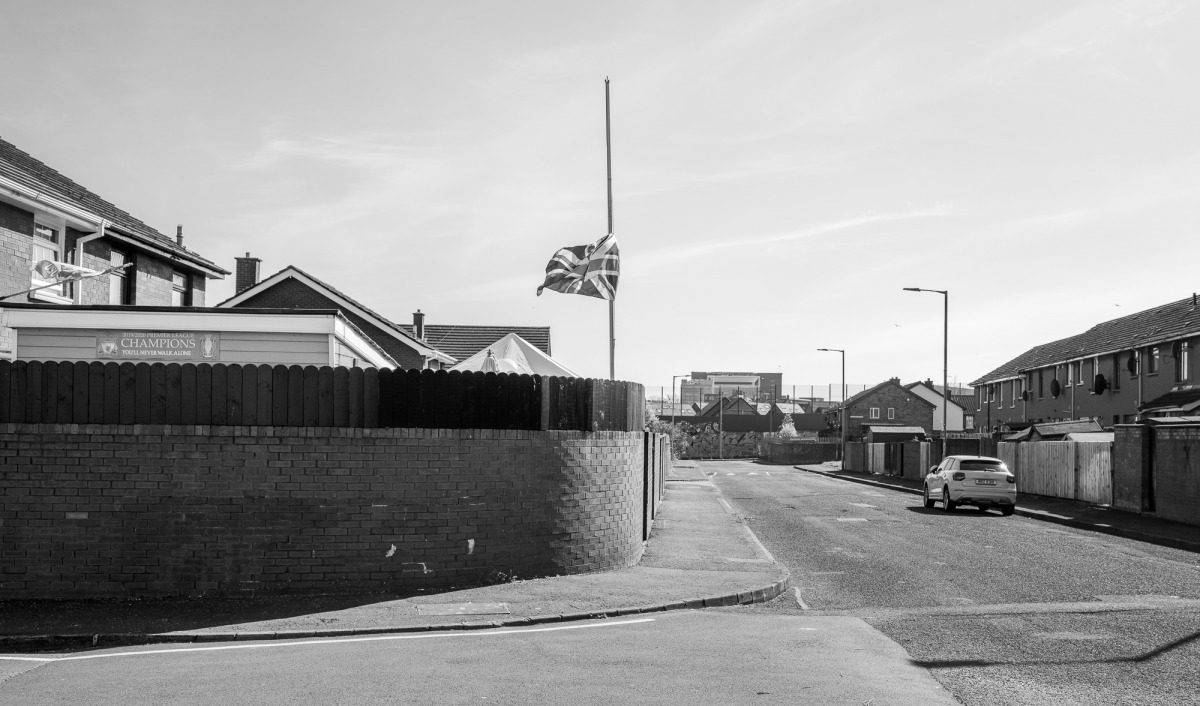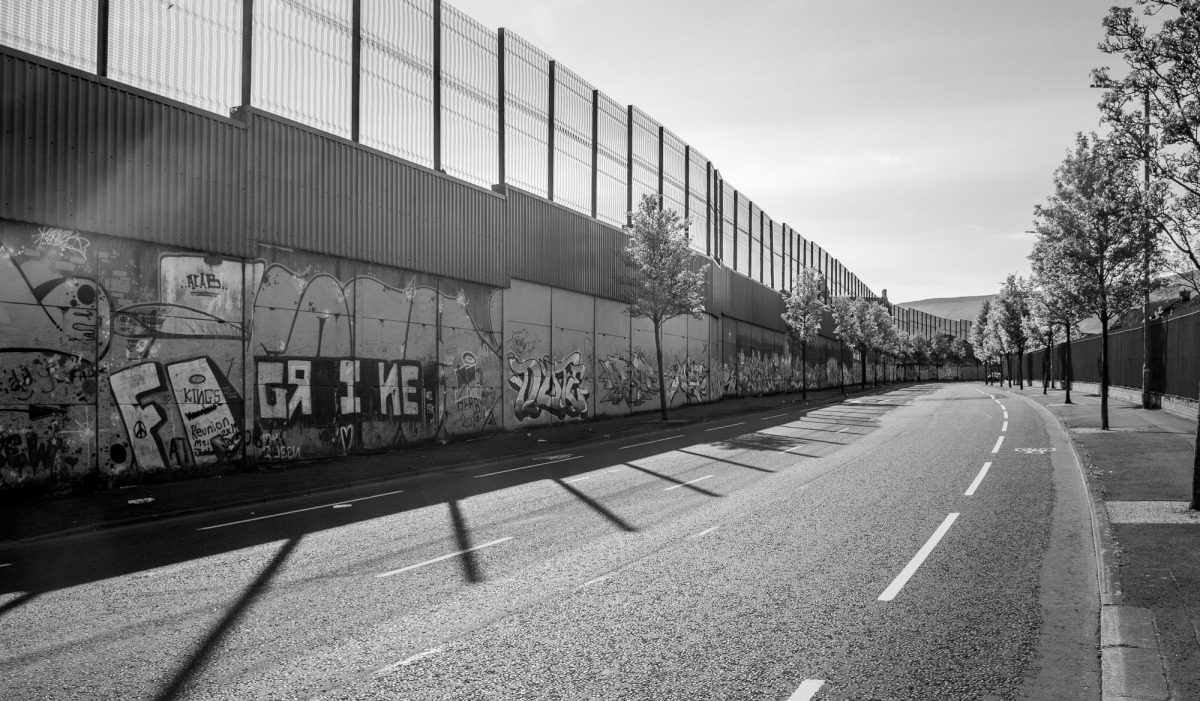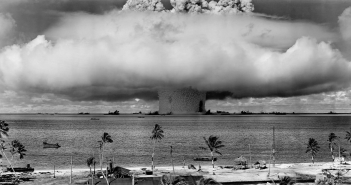This piece is not intended to provoke. It is more a look at the way people’s minds are shaped, how people think, and how that is articulated towards others.
I realized something was ‘ratten’ in the state of ‘Norn Ireland’ when I was about four. My half-brother of about six or so and I were walking the street just on the periphery of our Nationalist Catholic housing estate, whereupon a teenager brandished a samurai sword, and with a twist of anger in his face said to us: ‘Youse are Fenian bastards.’
I was perplexed even at that young age. We would venture around the estate pretty often so it was nothing new being out on our own during the day but this situation was … as I would grasp later, characterised by something that I would often hear in the rising and vitriolic anger during my life
‘Dirty Fenian bastard!’ and, ‘Fucking black bastard!’
These sectarian epithets, ‘terms,’ are learned from family members, from the local community, whether it be friends, etc., and were reinforced in those communities when I was growing up. Handed down. Indeed, I have repeated some sectarian hatred and bad language myself to tarnish ‘the other side’ i.e., the hated, and much-vaunted, enemy.
They are known in psychological terms as Interjections – or interjects. Which can be defined as the unconscious acceptance of terms, ideas, and personality traits of parents, guardians, and others we are close to when developing.
This language of physical revulsion, termed ‘the Sartrean Other,’ is purely tribal; a visceral reaction to ‘difference.’ The anatomy of disgust – physical revulsion. One is revolted by this other person, who does not worship the same way and that is to be feared, ridiculed and mistrusted – whole-heartedly.
Bigotry came swarming from the pulpit, the soapbox, and the barstool from fervent rhetoricians stoking tensions. Revisionism is a strong pill that many swallow. Leafing out the hurts and wrongs of the past from the blood-soaked history of the place. Darkness lies there amongst the weeds where goblins live and thrive. The goblins of fear-mongering suspicion – like you have an aura around you defining you as a being from a particular community, and once confirmed that aura becomes a symbolic role: to hate, to destroy, and to kill.
I have witnessed the teeth-binding, red-faced fury of hatred during a riot in Belfast when the two tribes were pitted against each other – the furore of two communities each on one side of the road separated by the police.

© Daniele Idini.
The din was deafening. I remember thinking to myself, ‘What circle or balcony of Dante’s Hell is this?’
Reinforced bigotry, non-capitulation, and plaintive victim-hood have been the two imposing forces that have fitted so succinctly into a certain kind of joint which once forged is forged into eternity in a union of unrest and hatred.
I once worked in a factory setting in East Belfast and while on a break went over to the table in the canteen. A colleague pulled out a chair, put the book he was reading down into an open holdall – a Noam Chomsky work by the way – and smiled. His arms were swathed in tattoos. He was stocky but friendly with me. I cannot recall if we chatted much or not but I did wonder if this fella was a Loyalist paramilitary. By the look of him, I’d opt for, yes, but looks can be deceiving. One thing is for sure, he looked like a tough individual.
Afterwards I wondered about the Chomsky book and thought to myself, ‘Fairplay, you’re reading Chomsky of all folk. For East Belfast, that’s a brave step in self-education.’ I smiled to myself at this autodidact. It was Chomsky’s Who Rules The World?
I told these guys like him, and guys from East Belfast during my shift and on the assembly line, that I was in recovery from alcoholism and do you know what? They listened and nodded their heads and some said, ‘Yeah, my Da was an alcoholic. A terrible alcoholic. Fairplay to you that you are working on it.’ I replied, ‘Sorry to hear that, and, thanks.’ It was gracious. Maybe God was looking over me. Who knows?
I was never queried if I was ‘A taig?’ I have no idea if they thought it. I surmise that it was because I was quiet, well-mannered, and honest with them: ‘I am from Ballymena and I am in recovery from addictions.’ Which is true. I was, and I am.
I worked late a couple of nights and through the night, a few shifts, at the factory and was never, ever questioned or challenged. I worked hard, and in many regards, was silently respected for my hard work.
Then a couple of years ago, I was working with a few guys from the Shankill and, again, do you know what? We became rather friendly.

Shankill neighbourhood. © Daniele Idini.
After our shift(s), they gave me lifts up home to a Nationalist area. Maybe seeing where I lived. Possibly. But that’s the cynic in me, maybe, showing some caution too.
Don’t get me wrong, thirty-odd years ago I could have been taken to a quiet area say, up further than Ballysillan, made to get out and down on my knees and blasted in the back of the head with a gun – a couple of shots for good measure. ‘There goes another Fenian bastard.’ The supposed killers may have said. Blasted into eternity. Like the other victims of sectarian violence. Boom. Gone.
But sectarianism doesn’t just hold a grip on the minds of people back home, from working-class ‘sectarian’ communities. Indeed it can apply to people who refer to themselves as ‘Christian’, and who can be just as evil as the balaclava-clad gunman.
I know because when I was homeless, and in a homeless hostel, in Belfast. I was harassed by a naïve, and arrogant member of staff who would profess themselves to be a ‘Christian’. Their harassment was down to pure green-eyed jealousy. Their religious ethics, and morals, were overtaken by the temper of ‘Getting one over on another human being.’ Because they felt inferior.
Basically, I was getting some attention from a female member of staff, who was to be my ‘link worker.’, This other member of staff did not like this and wanted to put an end to it. There was nothing going on, we just got on, but people noticed. Nothing would happen, nevertheless, this person glowered and bristled in their own way. It was selfish and clearly jealousy.
That’s a pretty bad situation to be in if you feel you have to harass a homeless person in a hostel just because you wanted other staff members in the hostel to worship you.
If you ask me, that was a disgusting way to act toward someone who was going through a difficult, and vulnerable, situation – someone without a familial home or any support. I was coming to terms with my alcoholism, but still in the early stages of accepting the reality and had not hopped on the wagon by that stage. I was struggling.
I also remember working with a young woman from Loyalist Tiger’s Bay on a project, in Belfast. We were chatting together and she said, ‘You know, Neil, there’s no difference between us, this sectarian and religious stuff.’ And I replied, ‘You know, you are 100% right.’ Her conversation released me from the infinity of it, and I knew things would be different from then on; meaning I would have to leave in order to move on with my own life, and be free of it.
People in power, usually part of some particular establishment have a vested interest in preserving the statelet and write about it – with bias. As in, our side, our argument is more legitimate than yours. Hogwash.
Things can be different. As I have outlined my experiences in that factory and with those guys from the Shankill. I simply listened to their story. They listened to mine.
It would be great if you could challenge yourself and listen too. You may learn something. I know I did.
Feature Image: The Cupar Way ‘Peace Wall’ © Daniele Idini.




